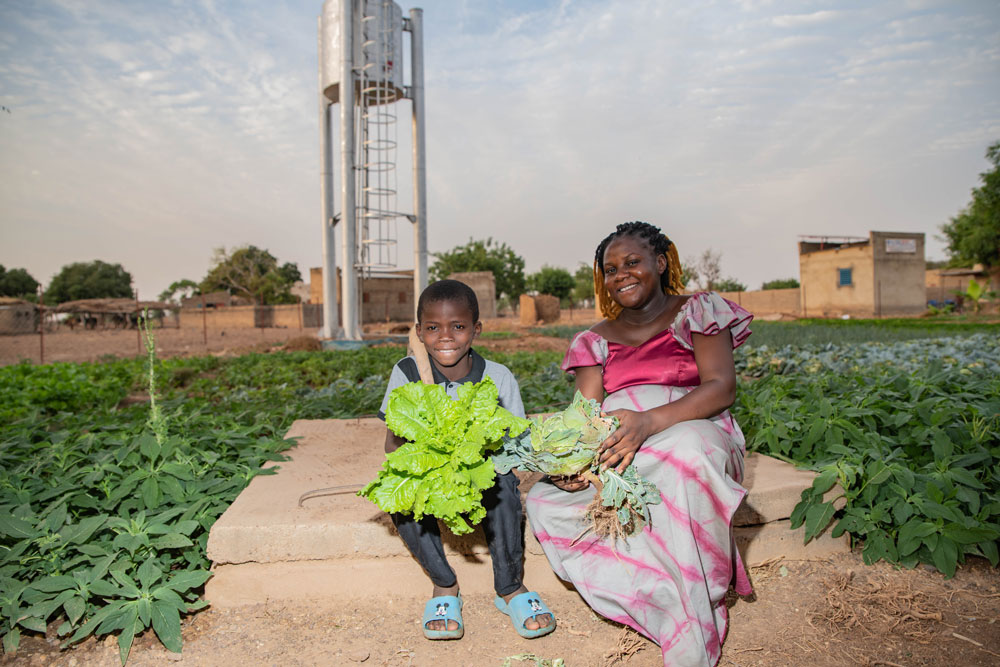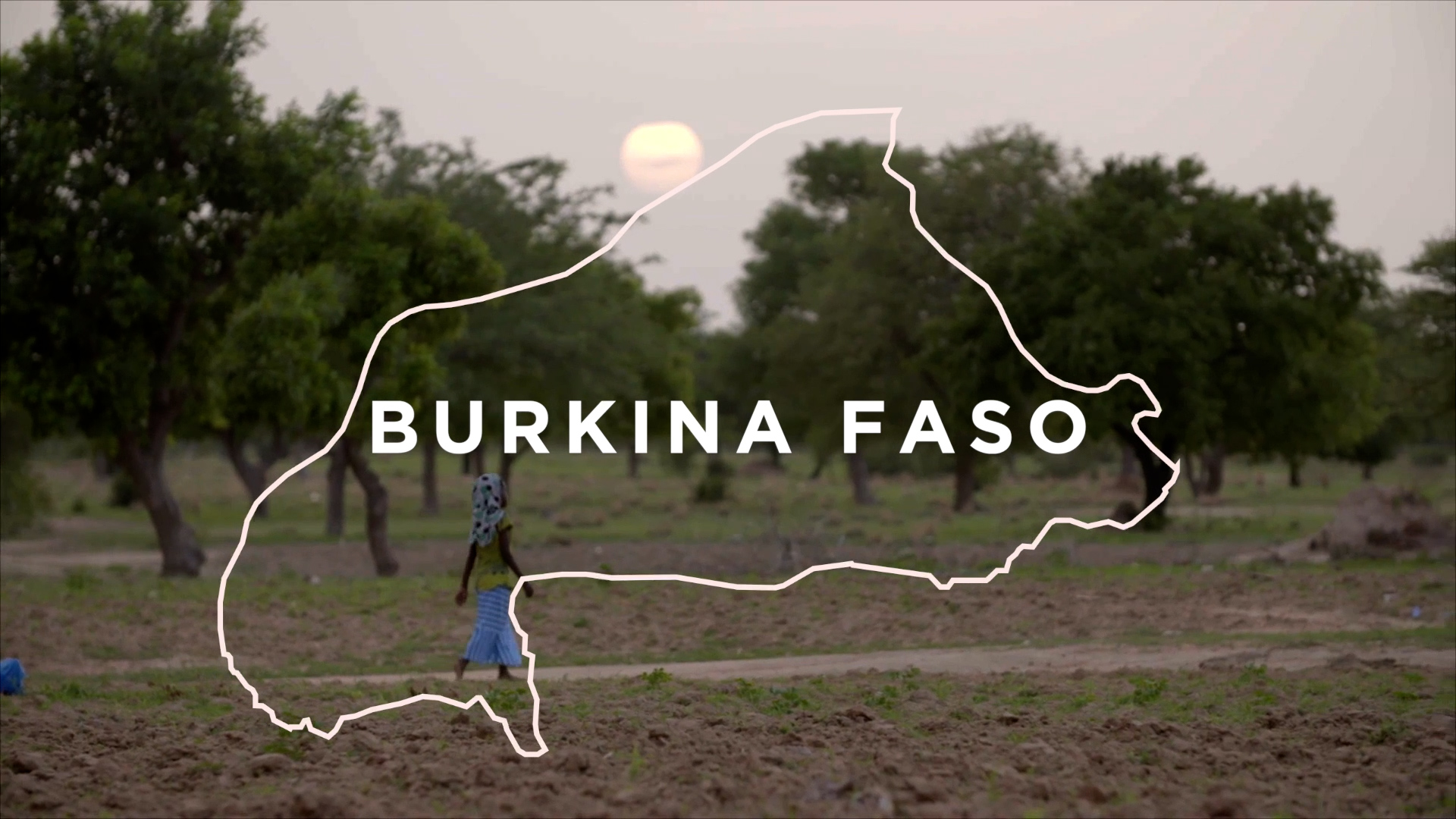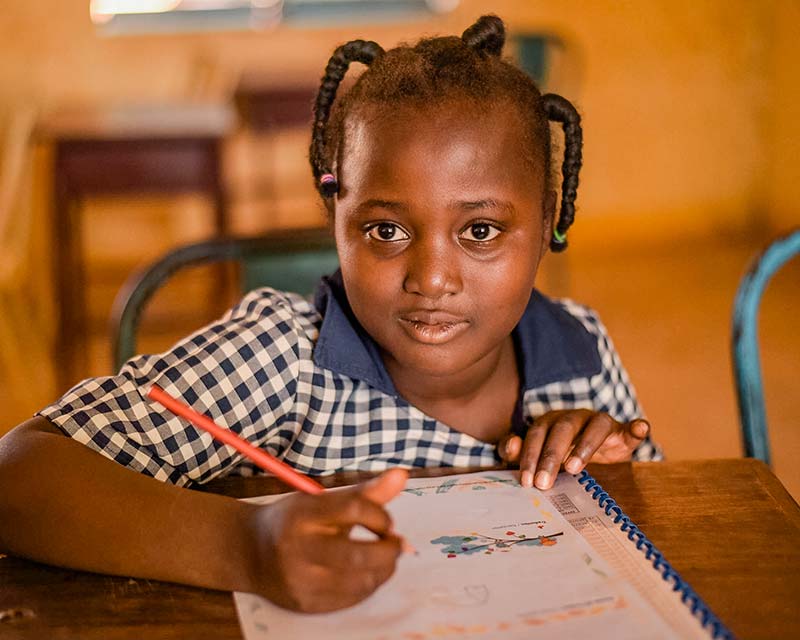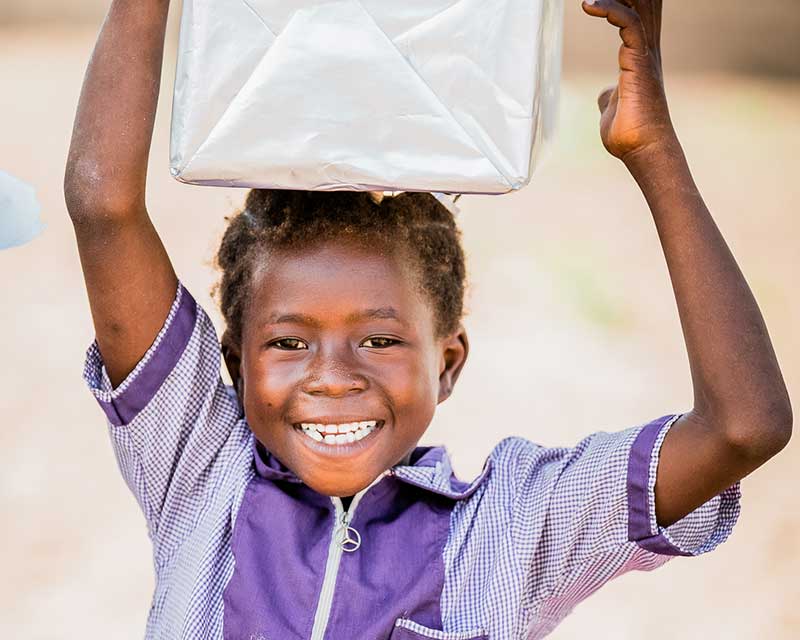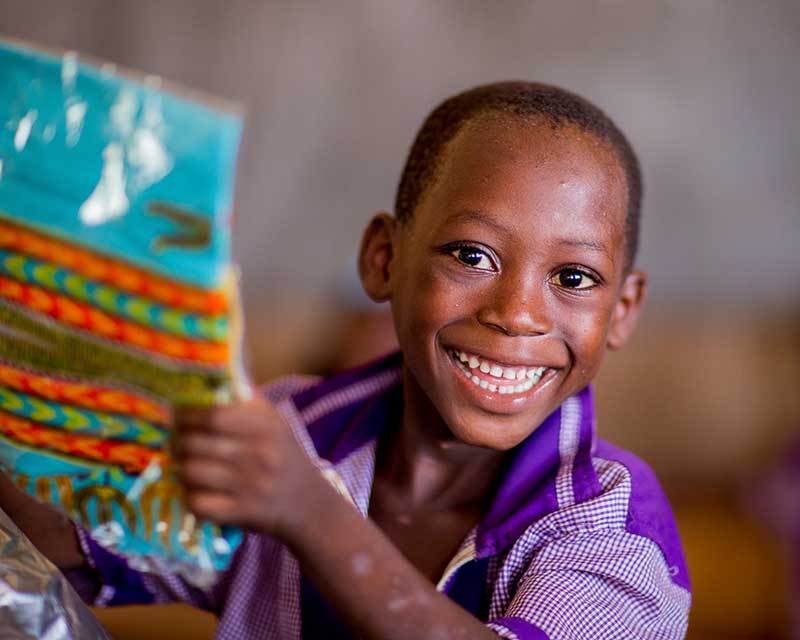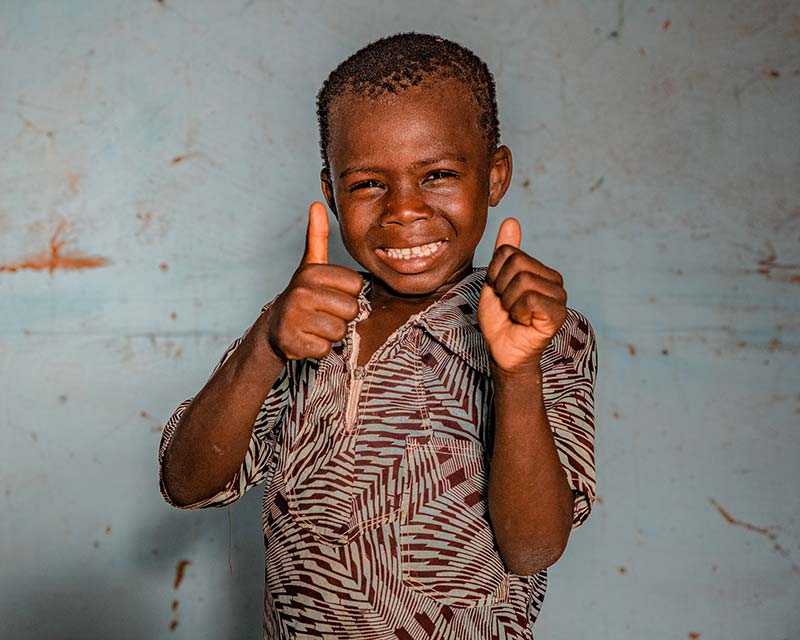Burkina Faso, previously known as Upper Volta, was part of French West Africa from 1896 until 1960. In 1984, the country changed its name to Burkina Faso which means 'the country of upright people'.
Burkinabè people are known for having a jovial attitude and a great sense of humour. People are quick to stop what they’re doing to help one another. In a society where many people cannot read or write, oral tradition is central to the culture. Stories are passed from generation to generation. There is also a strong literary history which is promoted in schools and includes works by well-known writers like Augustin Sondé Coulibaly, Jean Baptiste Somé and Monique Ilboudo.
Burkina Faso is one of the poorest countries in the world. The most vulnerable local communities struggle to access basic infrastructure and resources such as health and education. Over one-fifth of children under 5 suffer from growth stunting and malaria is a leading cause of death.
The overwhelming majority of local people make their living from subsistence agriculture, which is vulnerable to drought, floods, land degradation and, in recent times, locust plagues.
Burkina Faso has a very young population: 43 per cent is under 14 and two-thirds younger than 30 years old. Many young people are frustrated by the lack of opportunity for education and reliable work. As millions of Burkinabe people struggle to meet their daily needs, the ever-present threats of food and water scarcity across the nation make life more tenuous. Poor health is also a significant barrier to Burkina Faso’s development.
Local churches in Burkina Faso are making sustainable changes in their own communities to see vulnerable children rise from poverty.
READ MOREkeyboard_arrow_down
READ LESSkeyboard_arrow_up
